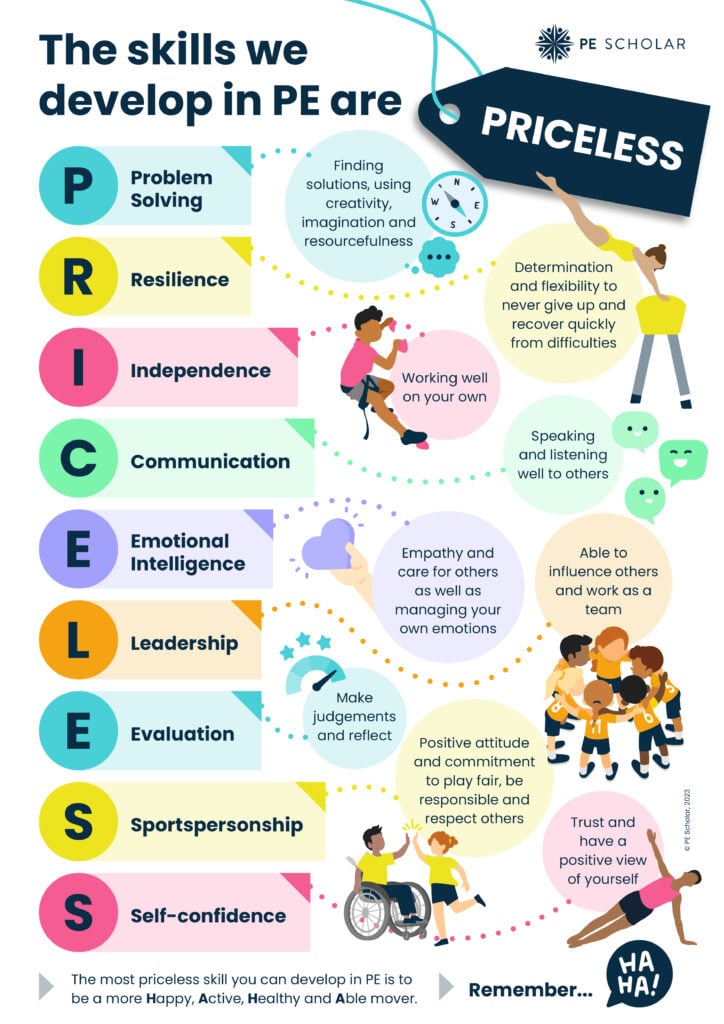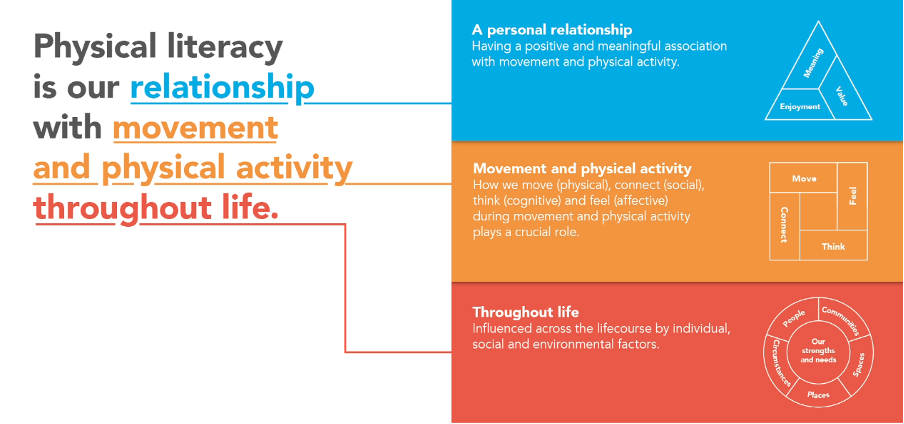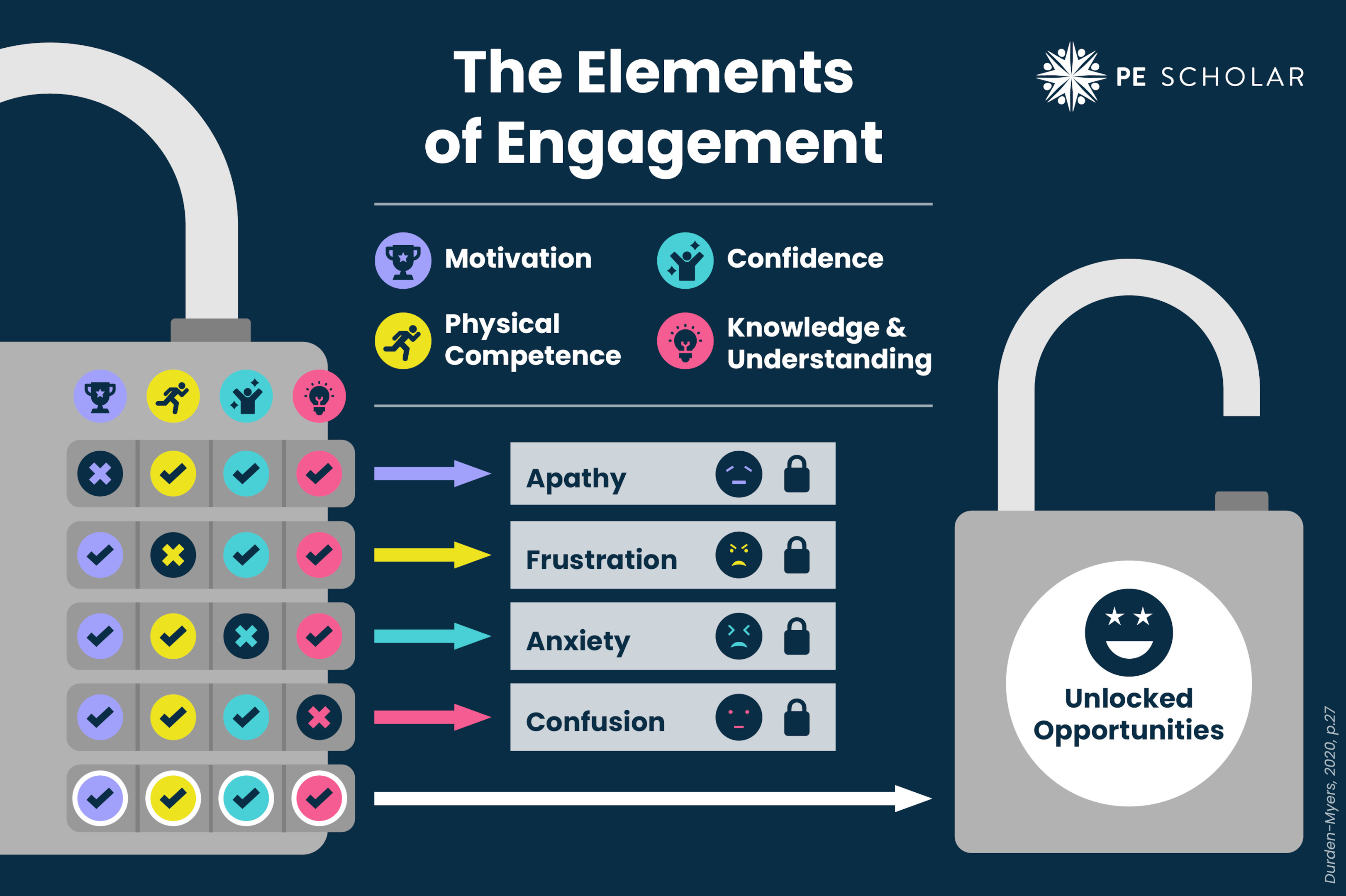

Introduction
Drawing on years of research and experience in PE practice we are delighted to be able to share with you a free to download PE teacher resource pack to help you ensure PE stands for Positive Experiences for all students in your school.
As many of you will be aware, we have been involved in Sport England’s Secondary Teacher Training Programme which has invested £13.5 million of National Lottery funding between 2018 and 2022 to reach more than 2,500 secondary schools across England. As highlighted in the final report and through our involvement in this project the common support requests were:
- Student voice to co-construct a curriculum that is inclusive and meets their needs and motivation
- Variety of teaching approaches to include the use of ‘models’ and a wider Spectrum of Teaching Styles
- Awareness of how popular teaching and learning strategies/ techniques translate into practical PE lessons
- Advocacy for our subject to ensure senior leaders and other stakeholders recognise the value of high-quality physical education
- Understanding around how to create a physical literacy informed PE offer
At the bottom of this page you will be just a few clicks away from receiving an email with a digital download to support your practice and lead change to transform PE in your school.
Feel free to include these materials in your own contexts, communications, training and professional development but please reference and credit our work and direct any interested PE teachers, trainee teachers, teacher educators and other schools back to this page to download their own copy.
What follows is a brief orientation of what the resource packs include:
Physical Education Pedagogy Teaching Techniques

Phil Cocks has been the real driving force behind these resource cards which help explain effective teaching and learning techniques in the context of PE. You will find a definition, application ideas, common misconceptions and links to further insight for each of the following topic areas:
- Modelling in PE
- Retrieval Practice in PE
- Questioning: Cold Calling in PE
- Interleaving in PE
- Checking for Understanding in PE
- Do It Now Activities in PE
Suitable for both primary school and secondary school contexts these resources will help you plan lessons that are more effective and engaging. They are also great for those studying a physical education degree to understand how these principles are applied in practice and for established teachers who want to enhance the effectiveness of their teaching.
Models-based Practice

Before going any further we owe a personal thanks to Dr Ash Casey who has been a pioneer and advocate for pedagogical models for well over a decade. Ash also kindly gave up half a day to provide some check and challenge on what we have produced on top of hours of useful discussions over the years. The 6 models we share are not exhaustive of research in this space but we feel they are a good starting point for exploring pedagogical models within your teaching. You can learn a bit more from Ash via the following video here and also make sure you connect with him via his website.
To help bring the underpinning research, implementation ideas, top tips and common misconceptions to life each card also contains a QR code linking to a short ‘talking head’ explanation video from one of our team.
Spectrum of Teaching Styles
Dr Shane Pill should also be credited with providing great insight into game-based approaches to teaching and coaching and he has also recently made a case for Mosston and Ashworth’s Spectrum of Teaching Styles to be a recognised pedagogical model. Our one pager attempts to summarise decades of knowledge, research and practice on this topic. We encourage you to go here for further information to support your teaching.
PE Teacher Lesson Checklist
Unfortunately PE and Youth Sport spaces continue to be a challenge when it comes to social justice, inclusion and equity. While lots of good work and positive role models are beginning to emerge in this area it is our duty to challenge our practice and always strive to be better. We hope this checklist helps you think about how best to provide places and PE lessons that enable all students to feel valued and belong.

Student Voice Surveys
Regular student voice is essential to reflect on your current offer, inform future provision and co-construct a future that meets the needs and motivations of all students. It should also provide a snapshot of current healthy active habits and lifestyle choices to include whether individuals or target groups are engaging in extra-curricular opportunities and what proportion have taken up the opportunity to represent school.
This pack includes links to two Microsoft Form based surveys that you can duplicate, edit and use. We recommend this becomes a habit every year to enable you to track changes over time too. If you have not been involved YSTs Girls Active work then there are some great materials here too. Similarly boys move is an increasingly popular toolkit with free digital resources available here.
PE Lesson Posters
We are also firm believers that PE provides the opportunities for students to develop a whole host of wider character traits and life skills and this additional poster will help promote these and trigger discussions along the corridor, in the changing rooms and in teaching spaces.

Physical Literacy
We have been involved over the last two years as part of Sport England’s physical literacy expert group in helping to formulate and launch the physical literacy consensus statement for England.

Our very own Dr Liz Durden-Myers provided evidence to the expert group which has significantly shaped the consensus. For more information to support your understanding and application of physical literacy we recommend you check out the following:
- PE Insights Vodcast
- Believe Move Grow Podcast
- This physical literacy course
- Padlock Infographic (Below) (Durden-Myers, 2020)

To support more holistic development in PE we have provided a whole host of prompt questions aligned to the physical literacy strands of move, think, connect and feel. This could be a useful visual aid for the changing rooms or card within a teacher planner to help balance questioning and feedback towards all domains of learning. You may also want to take a look at YSTs curriculum blueprint. to see how emotional, social and cognitive learning compliment physical competence development.
Meaningful PE
We have included a one-page summary of the most recent iterations in the ‘Meaningful Physical Education’ space which, thanks to Tim Fletcher, Déirdre Ní Chróinín, Doug Gleddie and Steph Beni are also helpful for us all when considering the ingredients of high-quality physical education. Read our book review on this here or access our bitesize course that is free to members here.
Advocacy
Included in the download pack are the Five infographics created by Sheffield Hallam University using insight from the SETT project. These will be helpful in advocating for the value of PE with senior leaders or other invested parties.
- Why PE matters
- Why PE makes a school happy
- Top tips to make PE great for students
- How to make PE for everyone
- Are you really listening?
Our Hopes
As a consequence of this work we are hoping to leave a lasting positive impact on physical education, targeting the five overarching aims of the original SETT programme:
- Children and Young People experiencing a greater breadth of PE, sport and physical activity which should lead to better preparation for a positive future relationship with sport and physical activity.
- Teachers having more focus on helping children and young people feeling capable and confident in their abilities.
- An improved confidence and attitude in teachers to encourage children and young people to be physically active.
- A reduction in the number of children and young people perceived to have a poor experience of PE and sport in school.
- A sustained positive change in the status of physical activity throughout schools.
Your Feedback
As you can probably tell, we are very excited about releasing these resources and getting them ‘out there.’ We have collaborated quite extensively on their production, had peer review and afPE’s Professional Development Board recognises our high standards of quality but these things can always be even better.

We welcome any and all feedback, good or bad, to help us further as we strive to close the research-practice gap in PE.
If you have any questions or feedback, please contact us directly or message us on X (Twitter) @PEScholar.



Thanks for this! Great to have stuff that you know is backed by research, ready to roll out and use in an attractive form. Nice one
where is the download, I’ve tried to find it but it keeps taking me to this page. anyone who has it would you mind sharing please. TIA
Hi Jamie, on this page you should see Download and then a short form to complete with your email address and location details then the full resource pack will land in your email inbox … or if you are a PE Scholar member you can just log in and click on each seperate pdf/ jpeg to download individually
This is all great. Thanks for all the effort in bringing this together.